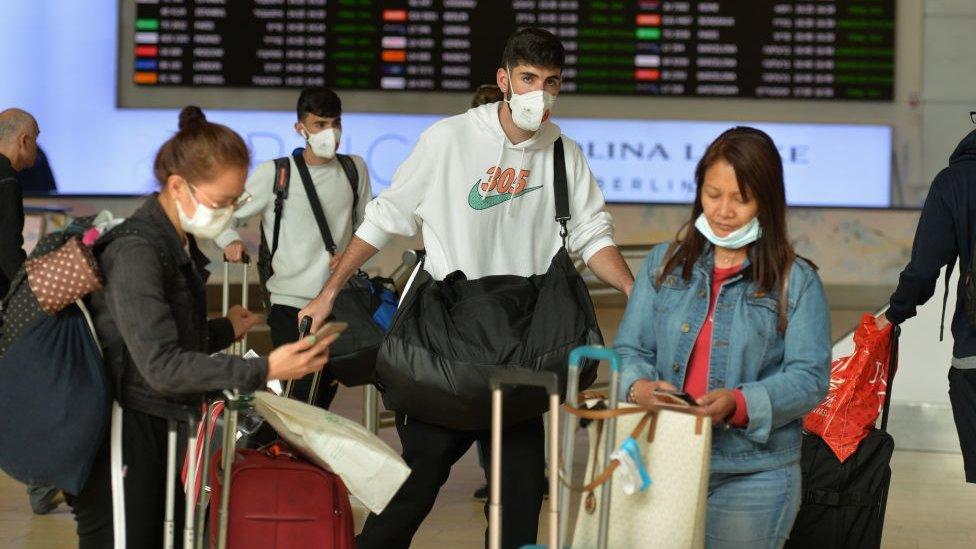Wall Street rallies after Trump declares virus emergency
- Published
- comments
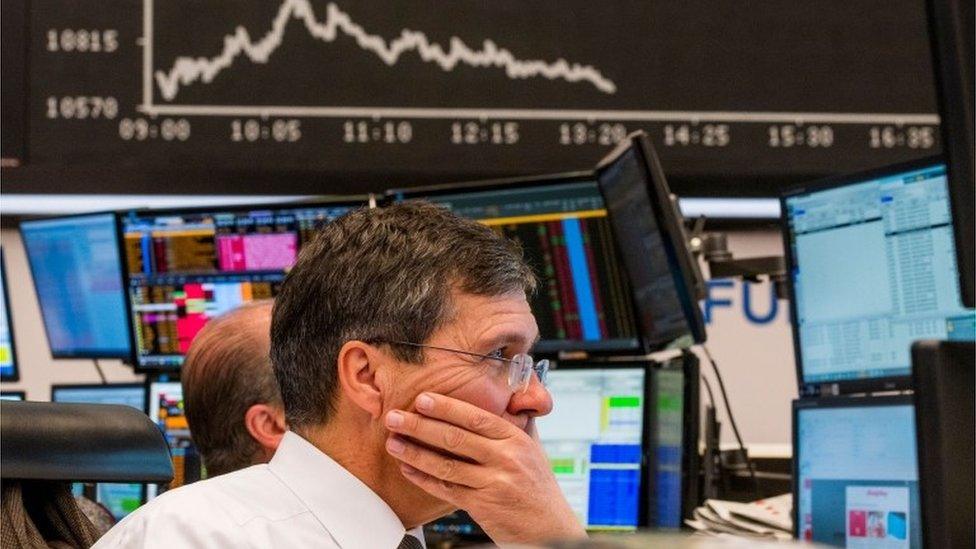
Wall Street shares rallied on Friday after US President Donald Trump declared the coronavirus outbreak a national emergency, freeing up money to fight the spread of the disease.
As the president spoke, the three main US indexes jumped more than 9%.
Earlier, London's FTSE 100 closed up 2.5%, retreating from an early surge, while other European indexes made similar moves.
The rally comes a day after Wall Street suffered its biggest losses since 1987.
Investors fear economies could slide into recession as a result of the pandemic, as business is disrupted, events are cancelled and schools in many countries close in an effort to contain the spread of the virus.
Many indexes around the world have now fallen more than 20% from their recent highs - a red flag for recession.
On Friday, the European Union said it will put in place a package of measures, including a €37bn euro (£33bn) investment initiative.
And German finance minister Olaf Scholz said his country could part-nationalise firms to tackle the crisis.
'Whatever we need'
In the US, House Speaker Nancy Pelosi, a Democrat, said her members would pass a bill that provides paid sick leave, among other aid. But Republicans and the White House have not said they will support it.
US Secretary Steven Mnuchin pledged the US would use "whatever tools we need". The national emergency declaration helps speed some kinds of funding to local governments.
In an interview with US broadcaster CNBC, he said he believed the coronavirus slowdown would be short-term and said the situation in 1987, when markets dropped some 20%, was a "much scarier time".
"This is nothing compared to that," he said.
Stock markets have been in turmoil in recent weeks with investors deeply concerned about the economic effects of coronavirus.
On Thursday, benchmark indexes on Wall Street and in the City of London saw their steepest daily falls since so-called Black Monday in 1987, falling 10%. In France and Germany, indexes lost more than 12%.
Those declines came despite actions by the Federal Reserve and European Central Bank to support the market.
On Friday, the UK's Financial Conduct Authority (FCA) prohibited short selling, external of a raft of shares in Italian and Spanish firms, after a request from authorities in those countries for the action, which is designed to protect that list of companies.

The prohibition on short selling came after major falls in Italian and Spanish indexes on Thursday.
Short selling is speculation that the price of a stock will go down, and if there are more short sellers than buyers, the price will be pushed down.
Firms including football clubs Lazio and Juventus were on the list, as well as luxury car manufacturer Ferrari.
The New York branch of the Federal Reserve also said it would speed up its planned purchases of US government debt, in response to ongoing strains in the US bond market.
In risky times, investors often look to buy Treasuries, driving prices up and yields lower. But in recent days, yields on many US notes have remained unexpectedly high.

Pound v dollar

Why should I care if stock markets fall?
Many people's initial reaction to "the markets" is that they are not directly affected, because they do not invest money.
Yet there are millions of people with a pension - either private or through work - who will see their savings (in what is known as a defined contribution pension) invested by pension schemes. The value of their savings pot is influenced by the performance of these investments.
So big rises or falls can affect your pension, but the advice is to remember that pension savings, like any investments, are usually a long-term bet.

What are your experiences relating to the coronavirus outbreak? Share your experiences by emailing haveyoursay@bbc.co.uk, external.
Please include a contact number if you are willing to speak to a BBC journalist. You can also contact us in the following ways:
WhatsApp: +44 7756 165803
Tweet: @BBC_HaveYourSay, external
Send pictures/video to yourpics@bbc.co.uk, external
Please read our terms & conditions and privacy policy
- Published13 March 2020
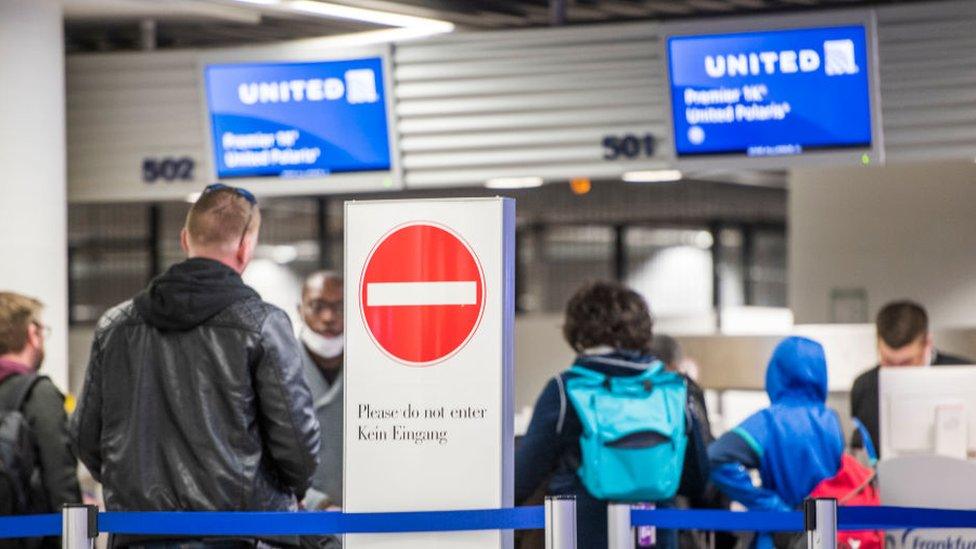
- Published12 March 2020

- Published12 March 2020
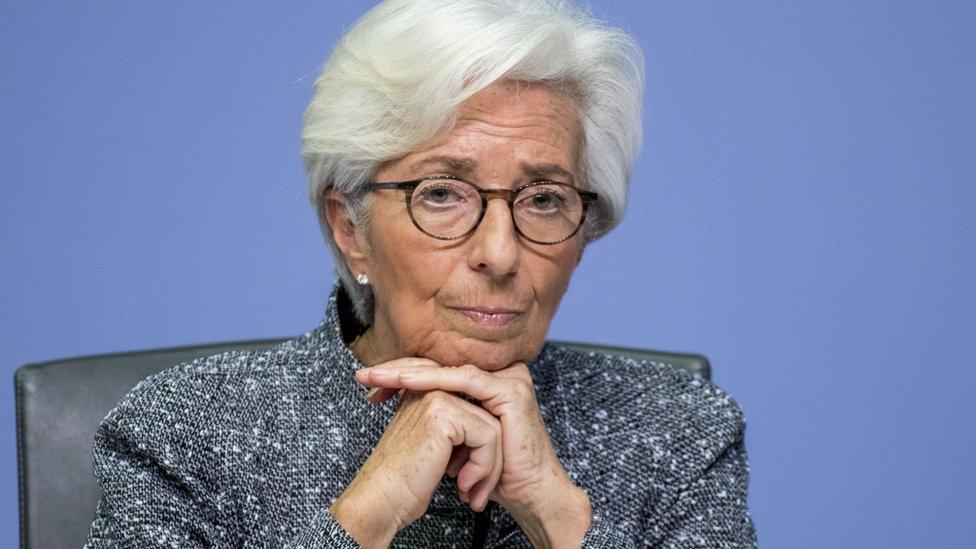
- Published12 March 2020
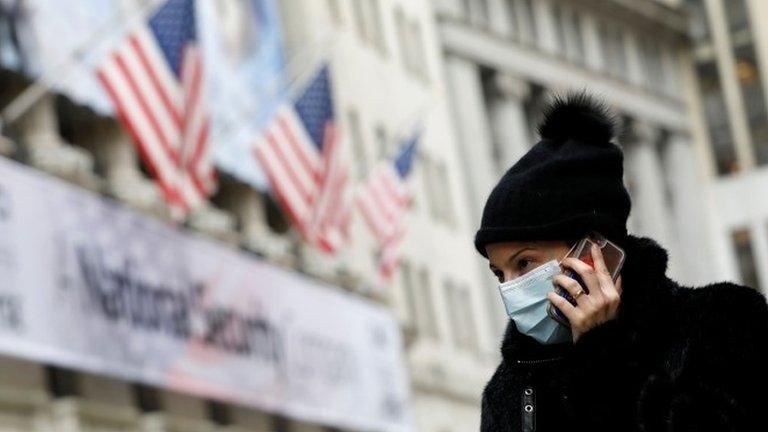
- Published12 March 2020
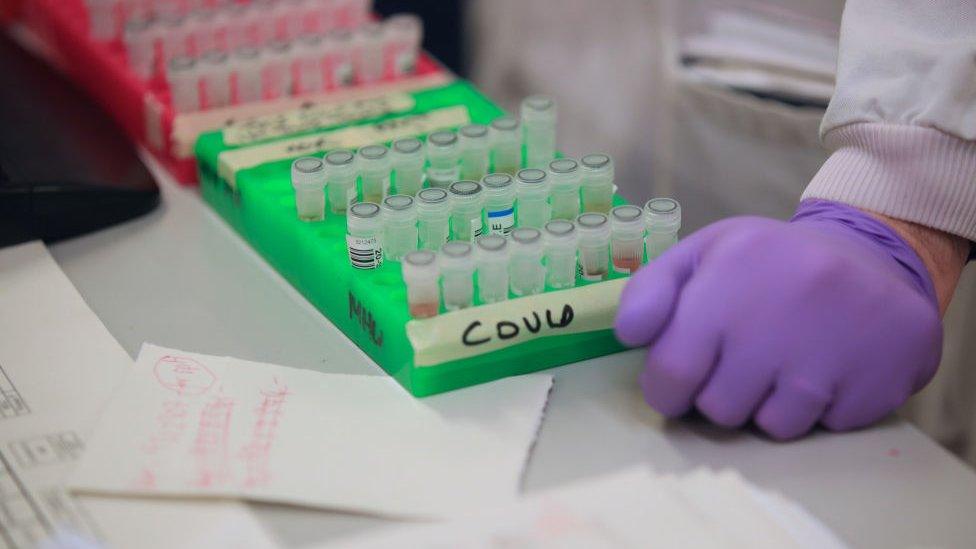
- Published12 March 2020
